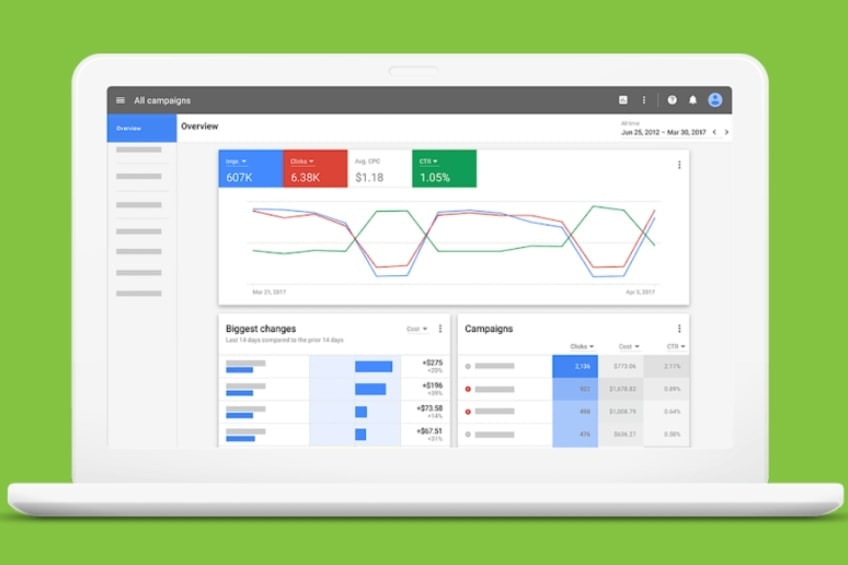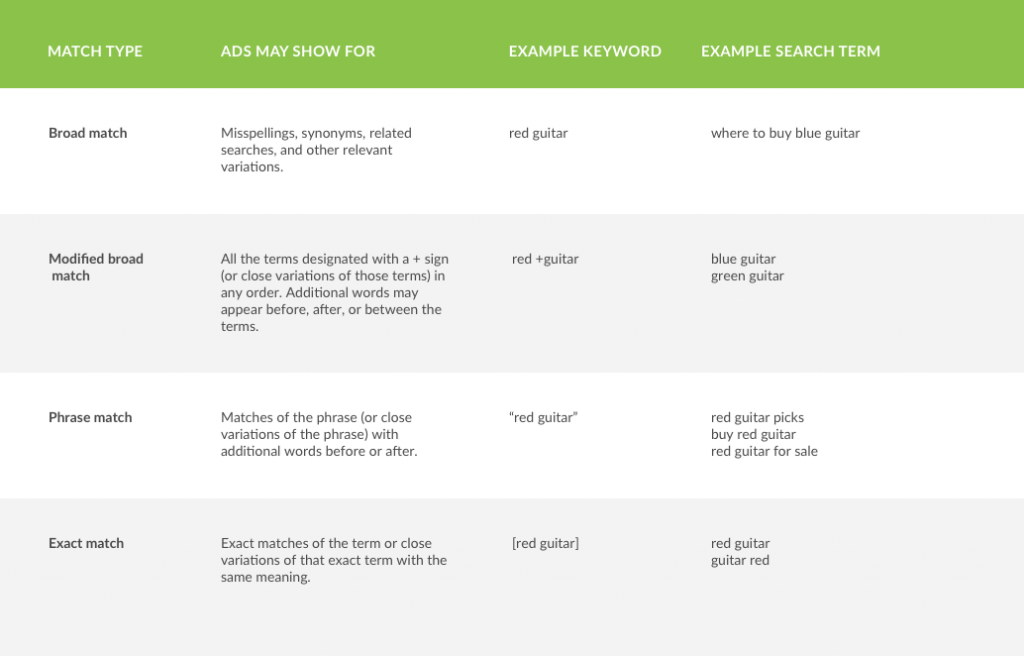
In this day and age, we are all well aware of how important it is to market your business on the good ol’ world wide web. Whether or not you should be utilizing digital advertising is rarely the question, but you may be wondering, “How the heck do I do it?” Well, one of the most popular ways to run an online ad campaign is with Google Ads (formerly Google Adwords). Setting up your first campaign can be super intimidating. But, with a well-organized plan of attack, tackling your build will seem much more manageable. Here are some of the best strategies on how to structure Google Ads campaigns.
Contents
ELEMENTS OF A CAMPAIGN
Before you can really start to devise a plan for how you want to structure your account, you will need to know the different elements that make up an ad campaign.

Campaign – This is how you organize to your Google Ads account into one or more overarching goal or objective. Are you trying to reach people who are searching for your product or service? Are you trying to build brand awareness? Maybe you want to re-engage with people who have visited your site? All of these are examples of an overall advertising objective, and you will want to separate your campaigns according to your goals. The campaign level is also where you will need to make the following decisions:
- Budget and Bid Strategy
- Which location/s you will be targeting
- Language targeting
Ad Group – Ad groups help you create the structure of each individual Campaign. This is where you will, quite literally, group ads. In other words, this is the level at which you break out your campaign by theme. For example, let’s say you sell musical instruments. You would most likely want to create ad groups for each instrument you sell; so you would have a “Guitar” ad group, a “Drums” ad group, a “Keyboards” ad group, etc.
Keywords – At this level of the account, you choose exactly which keywords you want each ad group to target. A good strategy in developing your keyword list is to take the perspective of the customer. Ask yourself, “If I was searching the internet for a drumset, what sort of terms would I search?” This will usually give you a pretty good starting point for your list. Additionally, you do not want any of your ad groups to have redundant keywords, and if you choose a proper break out for your ad groups, you shouldn’t see much of an overlap anyways. Google also allows you to add keywords with certain “match types.” Check out the table below to get a better idea of what exactly those look like.

Ads – This is where you will actually write your ads that people are going to ultimately see. You will want to create at least 3 different ad variants for each ad group, and continue to A/B test new ads against some of the lesser performing ads continuously throughout the campaign. There isn’t really any sort of magic formula for writing ad copy, but you should try to incorporate the keywords you are bidding on in that ad group into the corresponding ads. Just make sure you consistently keep an eye on how your ads are performing and regularly swap in some new variants after you’ve gathered enough data to determine which ad variants are performing best within each ad group.
FIGURING OUT THE BEST WAY TO STRUCTURE YOUR ACCOUNT
So, when it comes to structuring your Google Ads account, similar to writing copy, there isn’t exactly one specific “silver bullet” strategy. There are many different ways you can choose to build your account. But, at the end of the day, it just comes down to what works best for you. However, there are some best practice methods that are commonly used.
Based on the structure of your website.
A good website is most likely broken out with different products, services, or offerings separated into different pages of your site. This is also one way you can approach building an ad campaign structure. Think of the different pages of your site as their own ad group.
What are your different products or offerings?
This is a somewhat similar way to build a campaign as using your website structure would be. But, if you want to focus different amounts of money on different products or if you have a ton of variety in each product, breaking out your campaigns by product/service may make the most sense. Back to the instruments example, let’s say you carry a huge variety of guitars, you might want to make “Guitars” its own campaign and break out your brands Fender, Gibson, etc. as their own ad group.
Targeting specific locations?
Do you have multiple locations of your business? If that is the case, you may want to think about breaking your campaigns out based on your various locations. That way, you can target your ads and promotions specifically to that area.
CALM DOWN WITH THE KEYWORDS!
One final note I would like to add, as it is a mistake I tend to see fairly often. Don’t go too crazy and get carried away with your keywords! You most likely want to keep your keyword list for each ad group around the 10-20 range. The goal is for each ad group to have a super specific focus. So, chances are if you are needing 50+ keywords to cover all your bases, it is not specific enough. You also want to be cognizant of the fact that you DO NOT want to have duplicate keywords. For example “where to buy guitars” and [where to buy guitars] are duplicate keywords. Although their match type is different, both keywords would be triggered for the same search. You do not want this to be happening because you will essentially be bidding against yourself.
So while there isn’t one be-all-end-all way to structure your ad campaign, there are certain strategies and models you can follow that will help get you started on the right foot. The real takeaway here is that each campaign can be unique, and it is important to learn how to apply these different strategies in a way that works for you. We don’t all have the same business goals, so the structure we use to reach those goals won’t all be the same either. Hopefully, you can take the knowledge I’ve dropped in this article and use it in a way that best suits you and your advertising efforts. And finally, keep yourself in a state of perpetual optimization and you will be well on your way to success!
Chuck McCarthy is an Ad Specialist at Xponent21. Our company engineers digital experiences that delight visitors, attract new leads, increase conversions, and reduce operational overhead. To learn more about paid advertising or other digital marketing services, get in touch with us.

Pingback: Optimizing a Campaign for Success | Blog | Xponent21